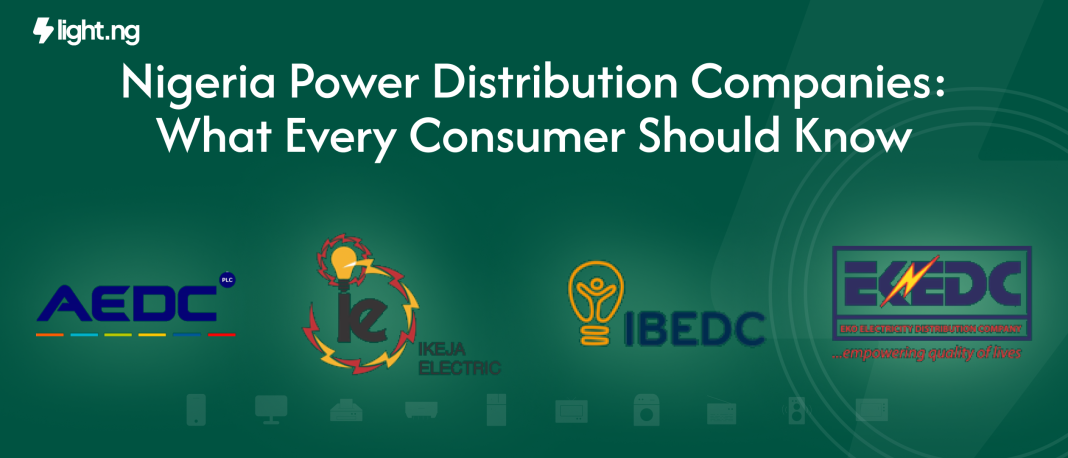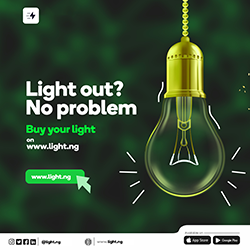When Nigerians talk about electricity, emotions swing between frustration, expectation and hope. At the center of it all are the Nigeria power distribution companies (DisCos), the final link between the grid and your home. Understanding how these DisCos operate helps you make better energy decisions and reduces confusion about billing, supply, and tariffs.
After the old PHCN structure was broken into generation, transmission and distribution, 11 DisCos were assigned to different regions. Their job? Move electricity from transmission lines to the homes and businesses that use it every day.
To learn more about Nigeria’s electricity regulations, you can visit the Nigerian Electricity Regulatory Commission’s official website.
The 11 Nigeria Power Distribution Companies
- Abuja Electricity Distribution Company (AEDC)
- Benin Electricity Distribution Company (BEDC)
- Eko Electricity Distribution Company (EKEDC)
- Enugu Electricity Distribution Company (EEDC)
- Ibadan Electricity Distribution Company (IBEDC)
- Ikeja Electric (IE)
- Jos Electricity Distribution Company (JEDC)
- Kaduna Electricity Distribution Company (KAEDC)
- Kano Electricity Distribution Company (KEDCO)
- Port Harcourt Electricity Distribution Company (PHEDC)
- Yola Electricity Distribution Company (YEDC)
Each company is responsible for metering, maintenance, transformers, billing and customer support.
Major Challenges Facing Nigeria Power Distribution Companies
Issues affecting DisCos include:
1. Old and Overloaded Infrastructure
Many transformers and lines are decades old, causing constant faults and outages.
2. Energy Theft and Vandalism
Illegal connections and bypassing meters reduce revenue needed to upgrade networks.
3. Limited Power Allocation
When DisCos receive less supply from the national grid, they ration electricity.
4. Billing & Revenue Collection Issues
Unpaid bills and irregular supply complaints affect the system’s financial health.
5. Customer Trust Problems
Because DisCos are closest to consumers, they receive the most blame, even when problems come from generation or transmission.
Understanding Tariff Bands
Tariffs are regulated under MYTO and grouped based on daily supply hours:
- Band A: 20+ hours
- Band B: 16–20 hours
- Band C: 12–16 hours
- Band D: 8–12 hours
- Band E: Less than 8 hours
More supply means higher tariffs, but inconsistency and poor communication often cause confusion.
For a deeper explanation, you may find Nigeria’s grid summary at the Transmission Company of Nigeria helpful.
Technology Is Changing How Nigerians Buy Electricity
Digital tools have made the work of Nigeria power distribution companies easier and improved the customer experience. Prepaid meters reduce disputes, and online platforms like LightNG make payments fast and stress-free.
With LightNG, users can:
- Buy prepaid electricity tokens instantly
- Access complete transaction history
- Avoid queues and physical vendors
- Resolve wallet or token issues faster
Learn more about LightNG prepaid vending
How to resolve token issues on LightNG
What Must Improve for Stable Electricity
For steadier supply across Nigeria:
- DisCos need stronger infrastructure investments
- Customers must pay bills consistently
- Meter tampering and illegal connections must reduce
- Regulators, DisCos, and consumers must communicate better
- Digital payment systems like LightNG should be encouraged to reduce loopholes
LightNG’s Commitment to a Better Energy Experience
At LightNG, we started with one goal: to make electricity payments simple, transparent and available to every Nigerian. We know how challenging unreliable power supply can be, so we offer a platform that lets you buy electricity anytime, track usage and stay in control of your energy payments.
We also provide guides, tutorials and support to help you understand the system, because good information is just as important as good electricity.






